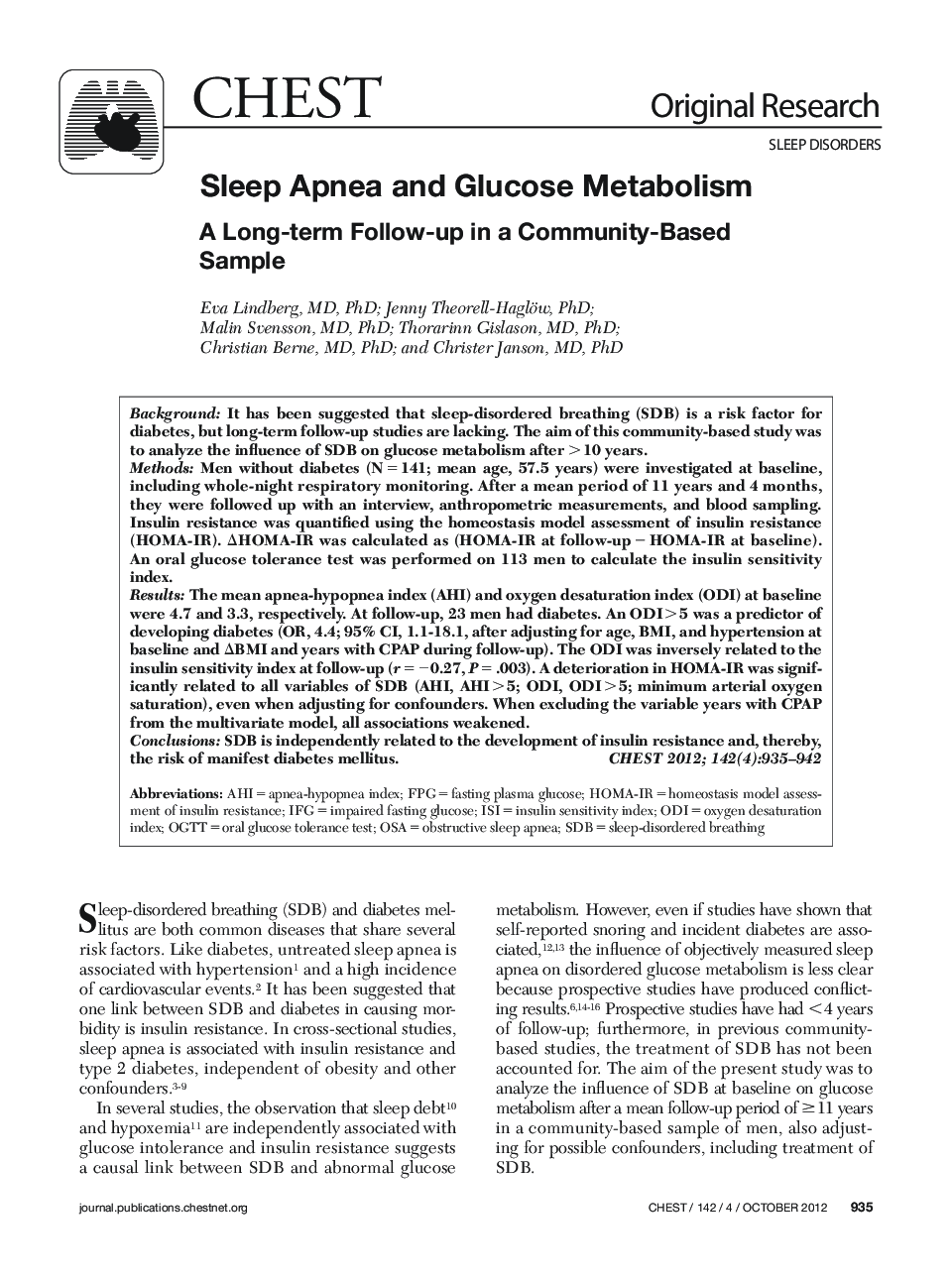| کد مقاله | کد نشریه | سال انتشار | مقاله انگلیسی | نسخه تمام متن |
|---|---|---|---|---|
| 2901699 | 1173356 | 2012 | 8 صفحه PDF | دانلود رایگان |

BackgroundIt has been suggested that sleep-disordered breathing (SDB) is a risk factor for diabetes, but long-term follow-up studies are lacking. The aim of this community-based study was to analyze the influence of SDB on glucose metabolism after > 10 years.MethodsMen without diabetes (N = 141; mean age, 57.5 years) were investigated at baseline, including whole-night respiratory monitoring. After a mean period of 11 years and 4 months, they were followed up with an interview, anthropometric measurements, and blood sampling. Insulin resistance was quantified using the homeostasis model assessment of insulin resistance (HOMA-IR). ΔHOMA-IR was calculated as (HOMA-IR at follow-up − HOMA-IR at baseline). An oral glucose tolerance test was performed on 113 men to calculate the insulin sensitivity index.ResultsThe mean apnea-hypopnea index (AHI) and oxygen desaturation index (ODI) at baseline were 4.7 and 3.3, respectively. At follow-up, 23 men had diabetes. An ODI > 5 was a predictor of developing diabetes (OR, 4.4; 95% CI, 1.1-18.1, after adjusting for age, BMI, and hypertension at baseline and ΔBMI and years with CPAP during follow-up). The ODI was inversely related to the insulin sensitivity index at follow-up (r = −0.27, P = .003). A deterioration in HOMA-IR was significantly related to all variables of SDB (AHI, AHI > 5; ODI, ODI > 5; minimum arterial oxygen saturation), even when adjusting for confounders. When excluding the variable years with CPAP from the multivariate model, all associations weakened.ConclusionsSDB is independently related to the development of insulin resistance and, thereby, the risk of manifest diabetes mellitus.
Journal: Chest - Volume 142, Issue 4, October 2012, Pages 935–942